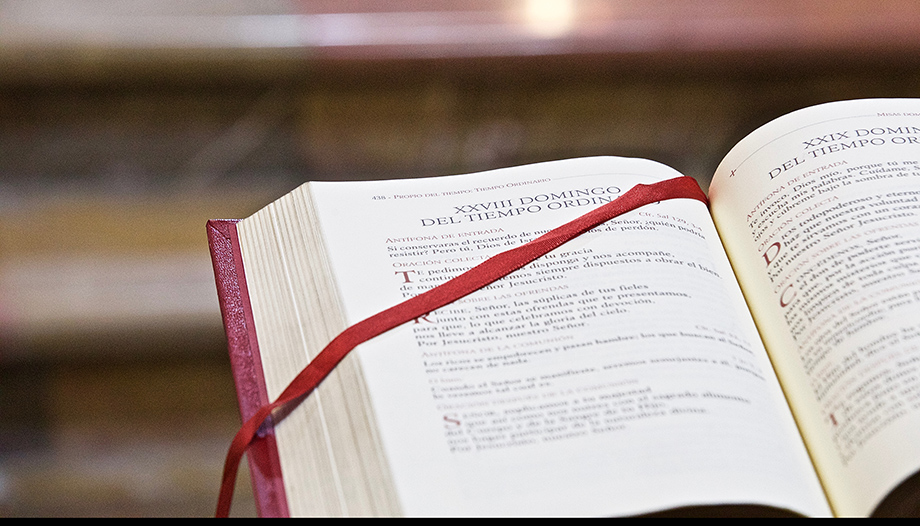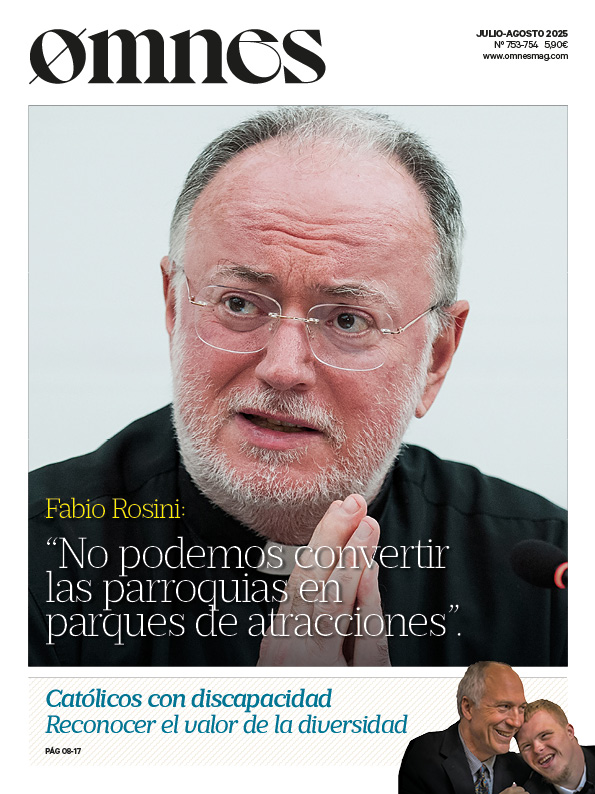Today the word of God encourages us not to repress our emotions but to use them, to be enthusiastic about God's salvation. "Rejoice daughter of Zion, shout for joy Israel, rejoice and be glad with all your being, daughter of Jerusalem.". In fact, God is not only encouraging us to do it, He is doing it Himself! "rejoices and rejoices with you... exults and rejoices with you.". The same idea appears in the psalm (this week's Isaiah), which also encourages us to "shout and sing for joy", and in the second reading, where St. Paul exhorts us to "rejoice in the Lord always".and insists: "I tell you again, rejoice".
We can use our emotions destructively, giving ourselves over to negative passions such as anger or lust, or we can use them positively to rejoice in God, as Mary did in her Magnificat. But we also know that the Christian life is much more than emotions: it is real faith and practical works. Thus, in the Gospel, St. John the Baptist, sent precisely to prepare people for the coming of Christ, lists a series of practical actions that his listeners must practice if they want to be prepared for the Lord. Tax collectors must not collect more than their due and soldiers must not extort with threats or false accusations and must be content with their wages. (Note the detail: the Gospels do not say that tax collectors and soldiers cannot be disciples of Christ. They must simply live honestly in order to be so).
And, since Christianity is not just a "feel-good" religion, the Baptist tries to arouse in his listeners a holy fear of God's impending judgment. "in his hand he holds the cudgel to winnow his flock, gather his wheat in the barn and burn the chaff in a fire that will not go out".. Rejoice in the Lord, but with true faith and good works. Do not be superficial chaff that will be burned. Be the good wheat that will be gathered into God's barn, that is, into heaven. Jesus made himself present in the form of wheat, of bread, with his sacrifice on the Cross and the gift of the Eucharist. Self-denial and generous dedication are the ways to become this good wheat, in addition to a willingness to bury oneself underground, that is, to occupy humble positions of service, far from the spotlight (Jn 12:24). So, yes to emotions in our Christian life: not negative, but not superficially positive either. Rather, deep emotions ranging from faith-filled joy to holy fear, and accompanied by good works.
The homily on the readings for the Third Sunday of Advent
Priest Luis Herrera Campo offers his nanomiliaA short one-minute reflection for these Sunday readings.








